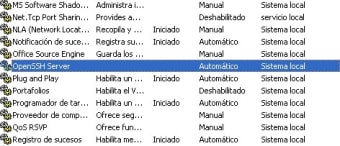The industry standard for SSH tunnelling
Screenshots
OpenSSH is a free connectivity tool used for remote login over the SSH protocol. It is used by developers and server administrators to access command line tools and features on remote servers and computers over the internet.
OpenSSH encrypts all traffic by default to prevent eavesdropping or connection hijacking by malicious third parties, such as with man-in-the-middle attacks. It supports a wide variety of different authentication methods and configuration options. Similar apps include MobaXterm and PuTTY.
What is OpenSSH used for?
OpenSSH is used to connect and perform operations remotely. It is most often used by server administrators and developers to perform command line operations on remote computers.
What is difference between SSH and OpenSSH?
SSH stands for Secure Shell and is a tool used for server administration, file transfer and remote communication over the internet and other networks. It is called secure because the connection and transfers between machines is encrypted, so nobody is able to see or spy on what is being transferred.
OpenSSH is simply an open source implementation of SSH. Being open-source means that anybody can inspect the code used to create OpenSSH. This includes the ability to modify the code and build custom versions of it. This is important for security purposes in order to verify that the code is safe and secure.
Safe and secure remote access over insecure networks
OpenSSH is a completely free, industry-leading tool for securely connecting machines over insecure connections. It can be used by developers to transfer files between machines, by administrators to run tasks on remote servers and generate/sign cryptographically secure keys, to name just a few of its many use cases.
Due to the nature of its use cases and its target audience, OpenSSH is not very user friendly. Users are typically highly technically competent developers or server admins, meaning that non-technical users are likely to struggle to use OpenSSH. However, for its target market and its specific uses cases, it is hard to beat OpenSSH.


